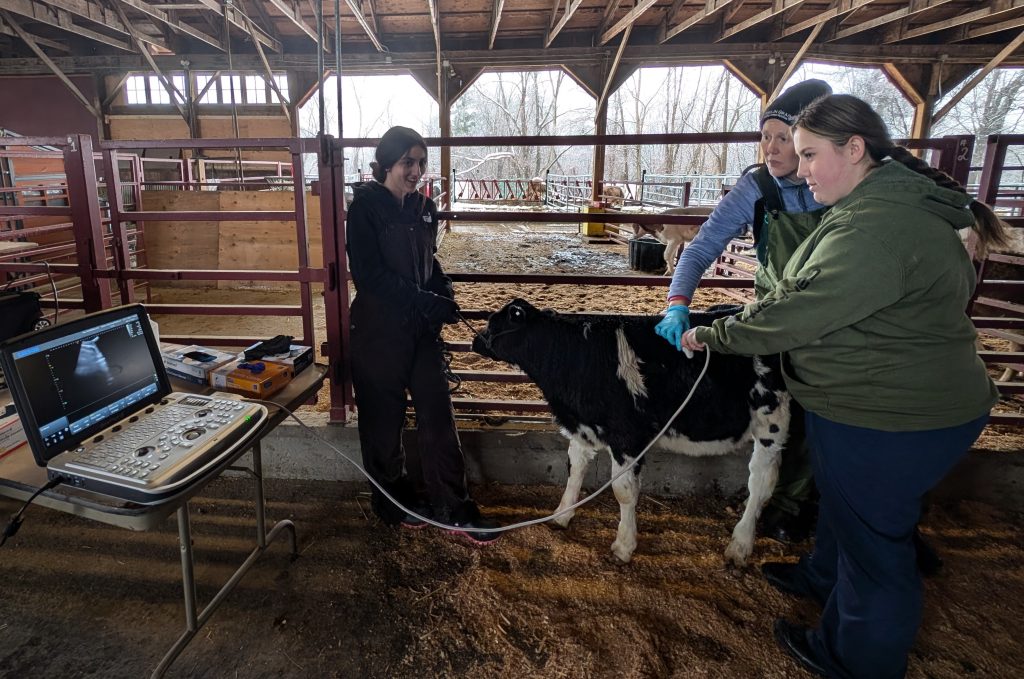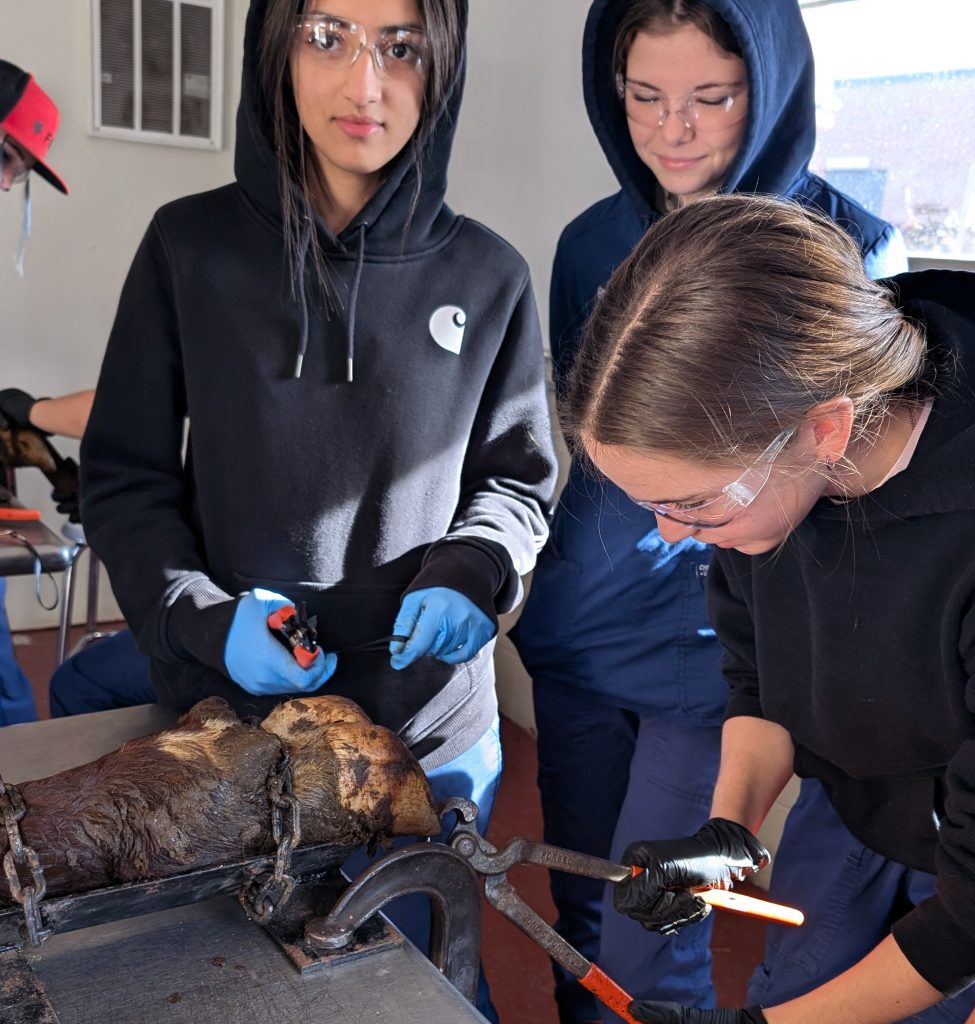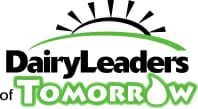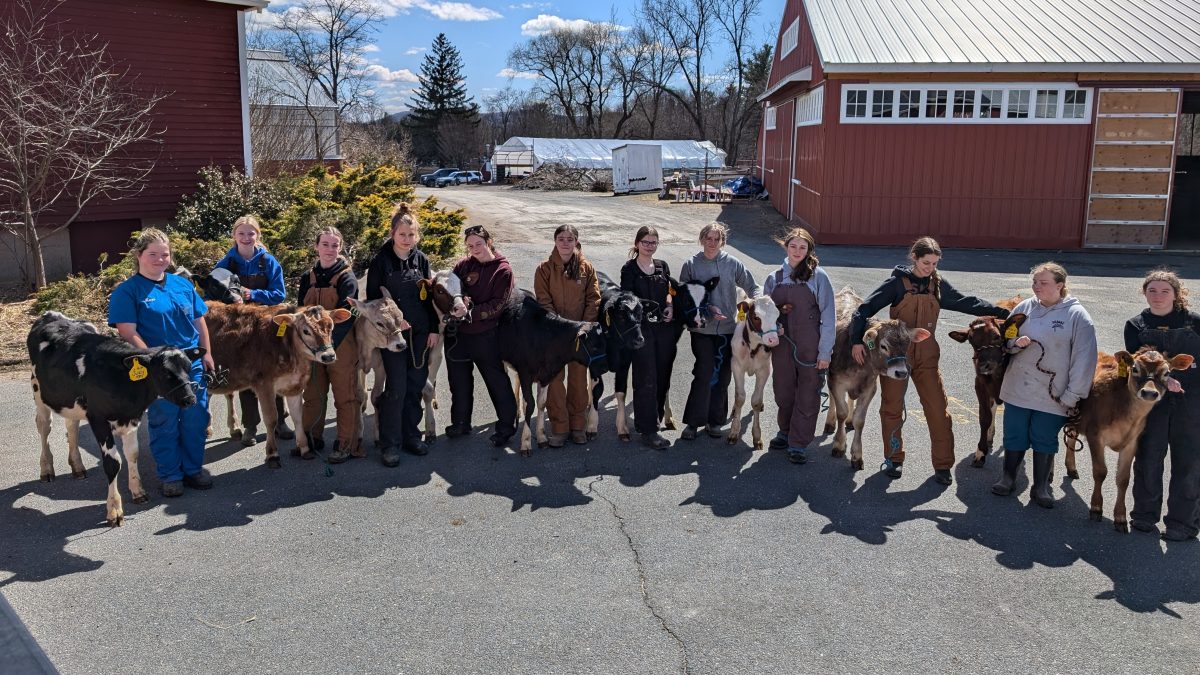Beth Evangelista is an agriculture teacher and FFA advisor in Massachusetts, teaching primarily 11th grade students from all walks of life.
“I have students who come from rural areas to students who will walk into our barns and look at me and say they’ve never seen a goat before. I’ve got the whole spectrum here,” she said.
To help expand on her animal science curriculum, Beth has been utilizing the Dairy Leaders of Tomorrow (DLT) program for the last 10 years to introduce dairy terminology and concepts to her high schoolers through four dairy-specific courses.
“I like the DLT curriculum. I think it’s simple to use, it’s simple to follow, and it’s just good information that matches a lot of what we’re teaching here. It works nicely for us, and students get a completion certificate at the end of the DLT courses,” she shared.

With a robotic dairy farm just down the road from their school, Beth finds that the DLT Intro to Dairy Technologies Course helps her students make real-world connections. They learn about modern technology and how dairy farmers use it through the DLT course – and then get to see it firsthand when they visit the farm in their community.
“Dairy is one of our predominant agricultural commodities in Massachusetts. We have a lot of farms and farmland around here. The farm down the road from us has a robotic calf feeding and robotic milking program, so that’s one of our big tours,” Beth explained. “We connect that to the technology section of the DLT program. We’re able to relate what they’re doing in the classroom to other things in the field and other farms in the area.”

How else are her students benefitting from the DLT program?
- Supports both classroom work and independent study. “We’ll discuss [the DLT lessons] as a class, and then they might have some time where they sit down independently to work on things. Sometimes I pull activities out and make it a bit bigger of a project. I teach the DLT program over the course of an entire year.”
- Aligns with national FFA contests. “A lot of the material you’ll find in the DLT program is actually involved in the national FFA test quizzes. I have a lot of teams that typically go to nationals for dairy evaluation and management. I find the DLT information very useful for that as well. I’ll pull it out sometimes as after-school practice and study material for FFA.”
- Allows students to earn college credits and a find a career in the agriculture industry. “Delaware Valley University also gives college credit to students who have completed all the DLT courses if they go to school there. We have a few students at DelVal right now, so hopefully they were able to take advantage of that. It’s helpful and encouraging for them to go on to college and continue to work in the field and the industry.”

Whether her students decide to pursue a career in dairy farming or agriculture, or go down a different path, Beth believes all students should understand how important agriculture is to our communities and economies.
“I have so many kids who don’t come from a farm background. It’s astonishing for them to learn how things are priced, where food comes from, and the work that goes into it,” Beth shared. “Whether or not they choose to go into agriculture or dairy, I think it’s extremely important to understand how much money is actually being generated by the agriculture industry – and how much it supports the local economy and how important it actually is to them .”
—
Dairy Leaders of Tomorrow is a program designed specifically to prepare high school students to work in the dairy industry. A three-part model program, Dairy Leaders of Tomorrow offers classroom instruction, on-farm experiences and scholarship opportunities. Thanks to donors and partners, the program is free for all agriculture educators. Sign up today.

